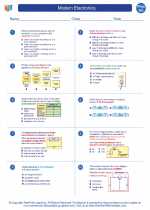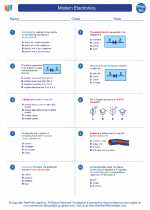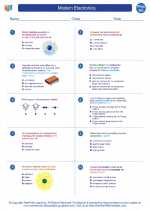Medium in Physics
In physics, a medium is a substance or material through which a wave can travel. Waves can be mechanical, such as sound waves or seismic waves, or electromagnetic, such as light waves or radio waves. The behavior of waves as they pass through a medium is determined by the properties of the medium itself. These properties include the medium's density, elasticity, and temperature.
Types of Medium
There are two main types of mediums in physics:
- Mechanical Medium: This type of medium requires a physical substance for the wave to propagate. For example, sound waves travel through air, water waves travel through water, and seismic waves travel through the Earth's crust.
- Electromagnetic Medium: This type of medium does not require a physical substance and can exist in a vacuum. It includes the propagation of light, radio waves, and other electromagnetic waves.
Properties of a Medium
The behavior of waves in a medium is determined by several key properties:
- Density: The mass per unit volume of the medium. Waves travel at different speeds in mediums with different densities.
- Elasticity: The ability of the medium to return to its original shape after being disturbed. It determines how the medium transmits the wave energy.
- Temperature: The temperature of the medium affects its density and elasticity, which in turn affects the speed and behavior of waves within the medium.
Wave Behavior in a Medium
When a wave travels through a medium, it can exhibit various behaviors, including reflection, refraction, diffraction, and interference. These behaviors are influenced by the properties of the medium and the nature of the wave itself.
Study Guide
To understand the topic of medium in physics, consider the following study guide:
- Learn about the different types of waves and their characteristics.
- Study the properties of different mediums, including their density, elasticity, and temperature.
- Understand how waves behave in different mediums, including reflection, refraction, diffraction, and interference.
- Practice solving problems related to wave behavior in various mediums.
- Explore real-world examples of wave propagation in different mediums, such as sound waves in air or seismic waves in the Earth.
By mastering the concept of medium in physics, you'll gain a deeper understanding of how waves propagate and interact with their environment.
.◂Physics Worksheets and Study Guides High School. Modern Electronics

 Worksheet/Answer key
Worksheet/Answer key
 Worksheet/Answer key
Worksheet/Answer key
